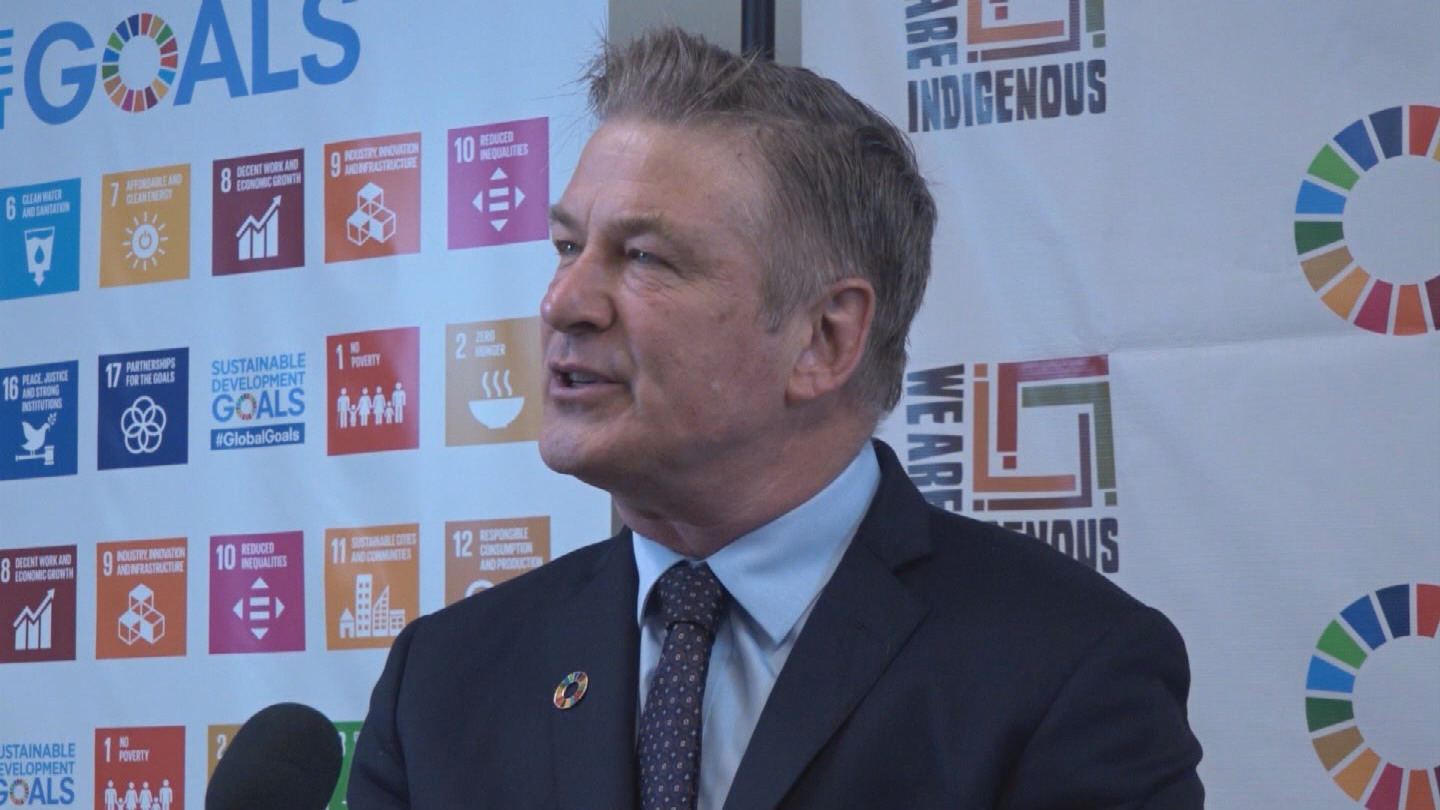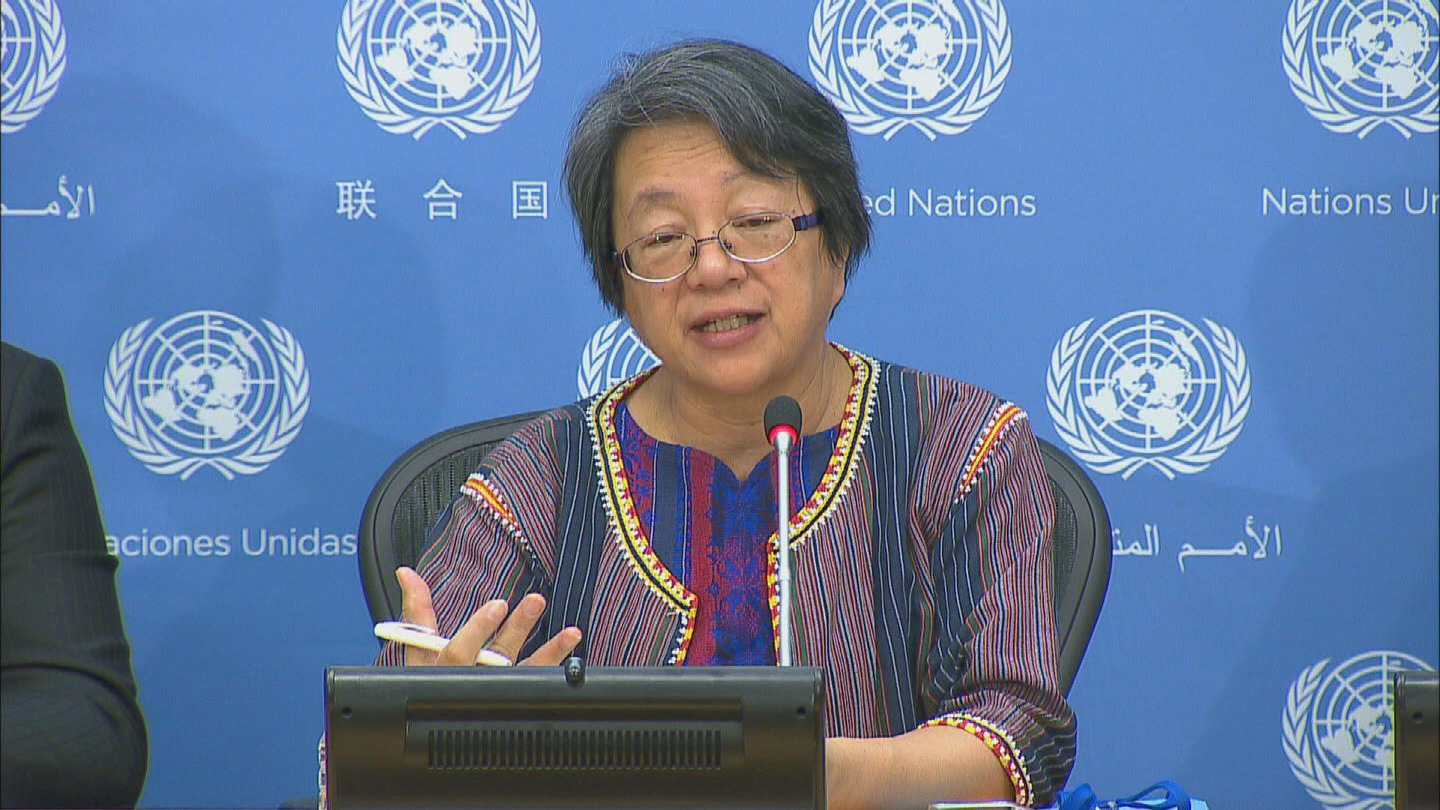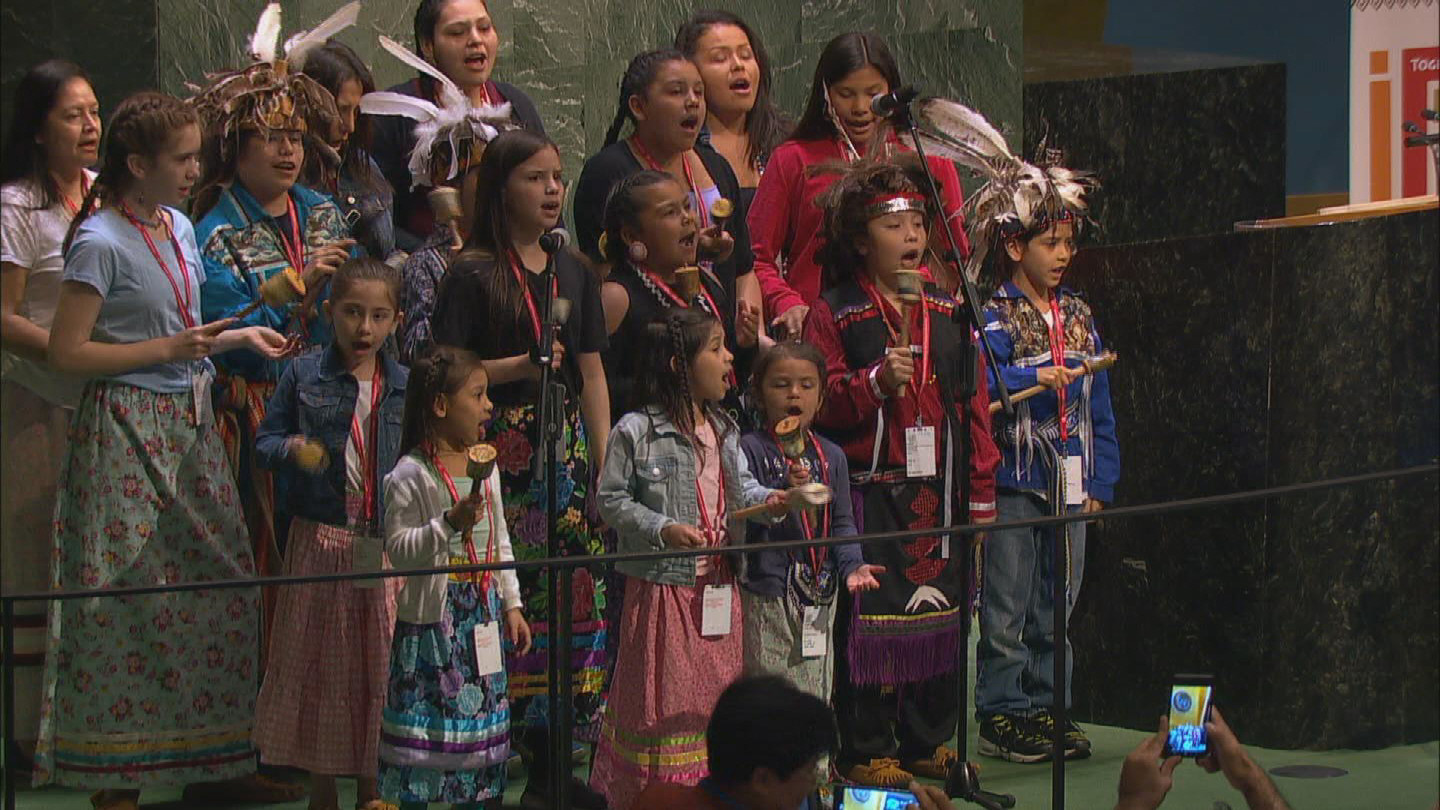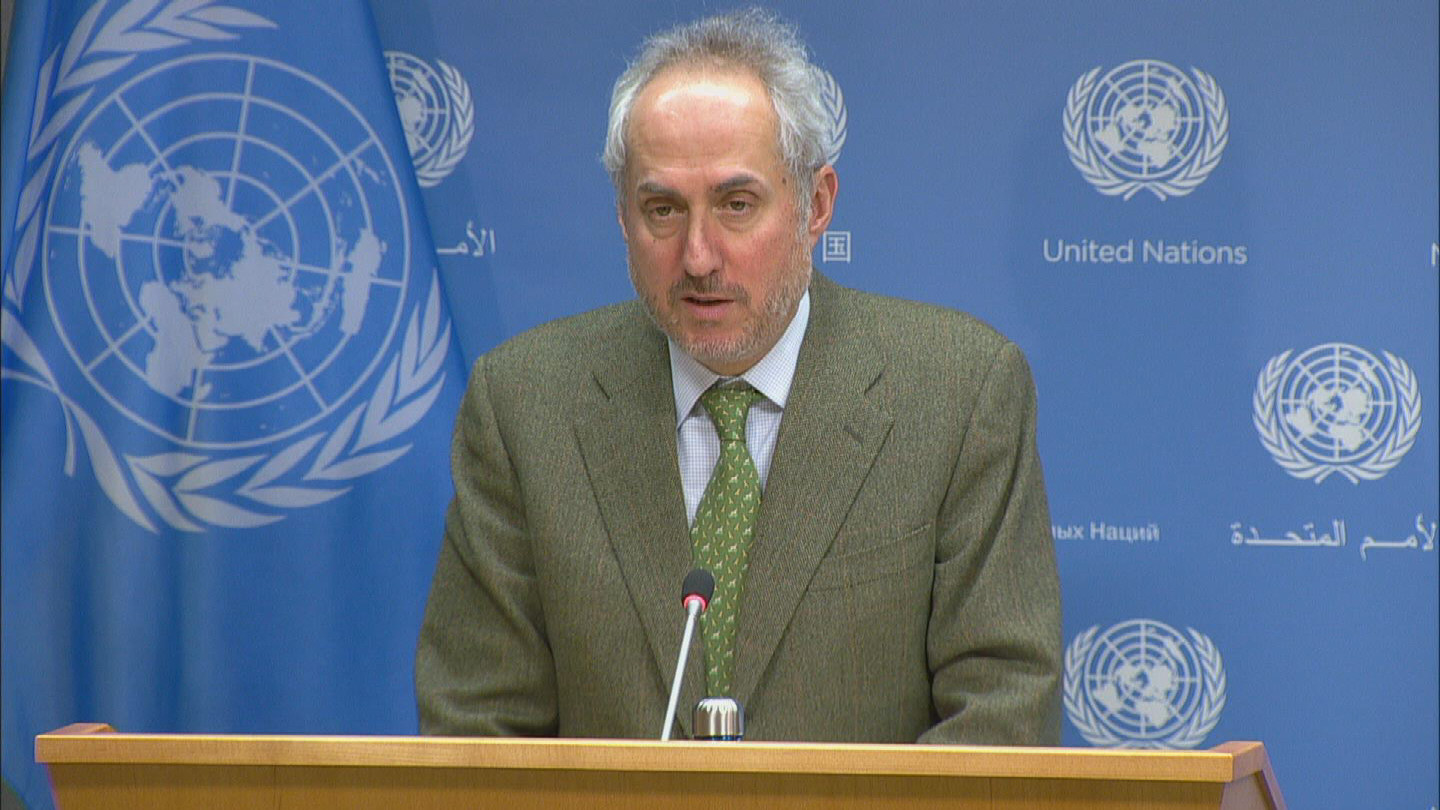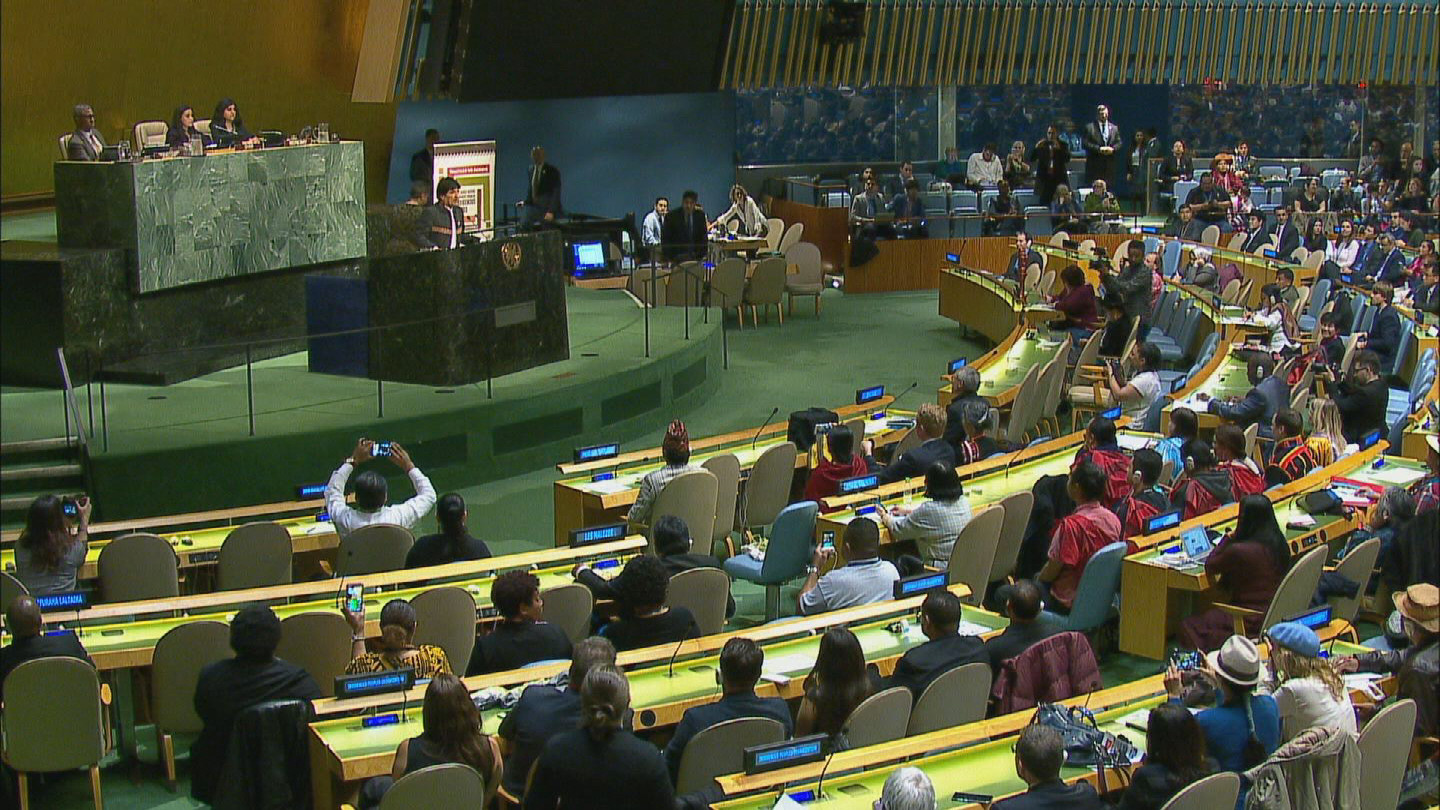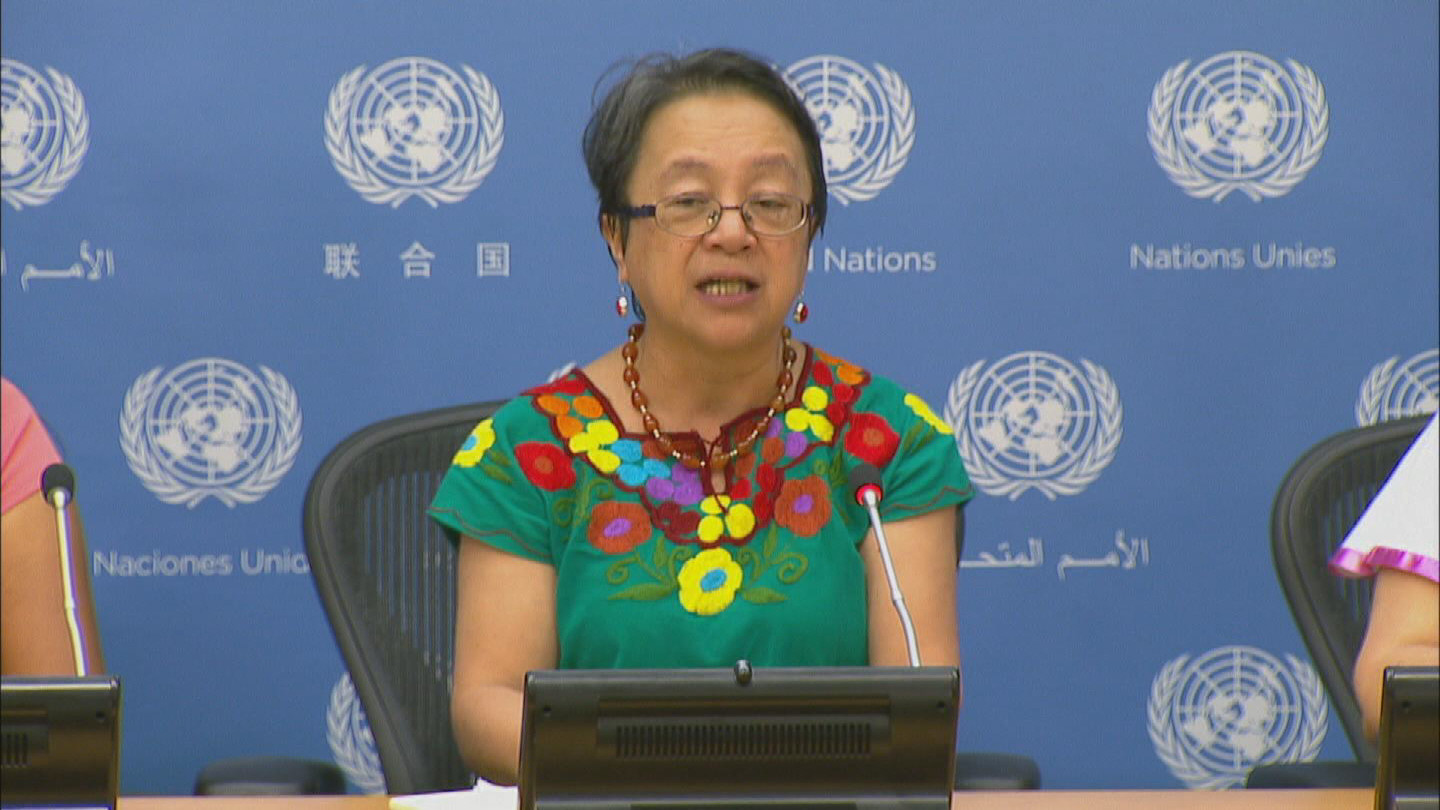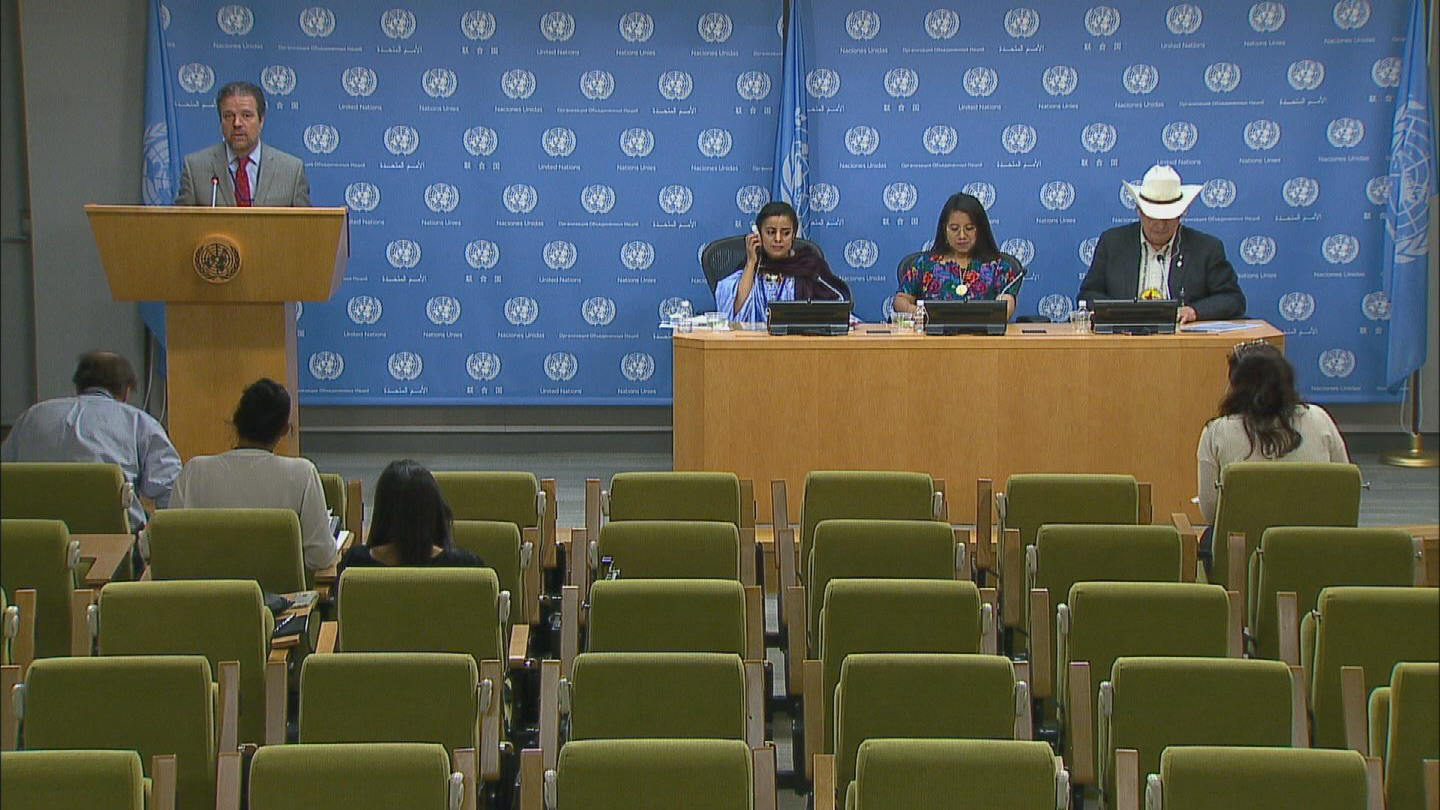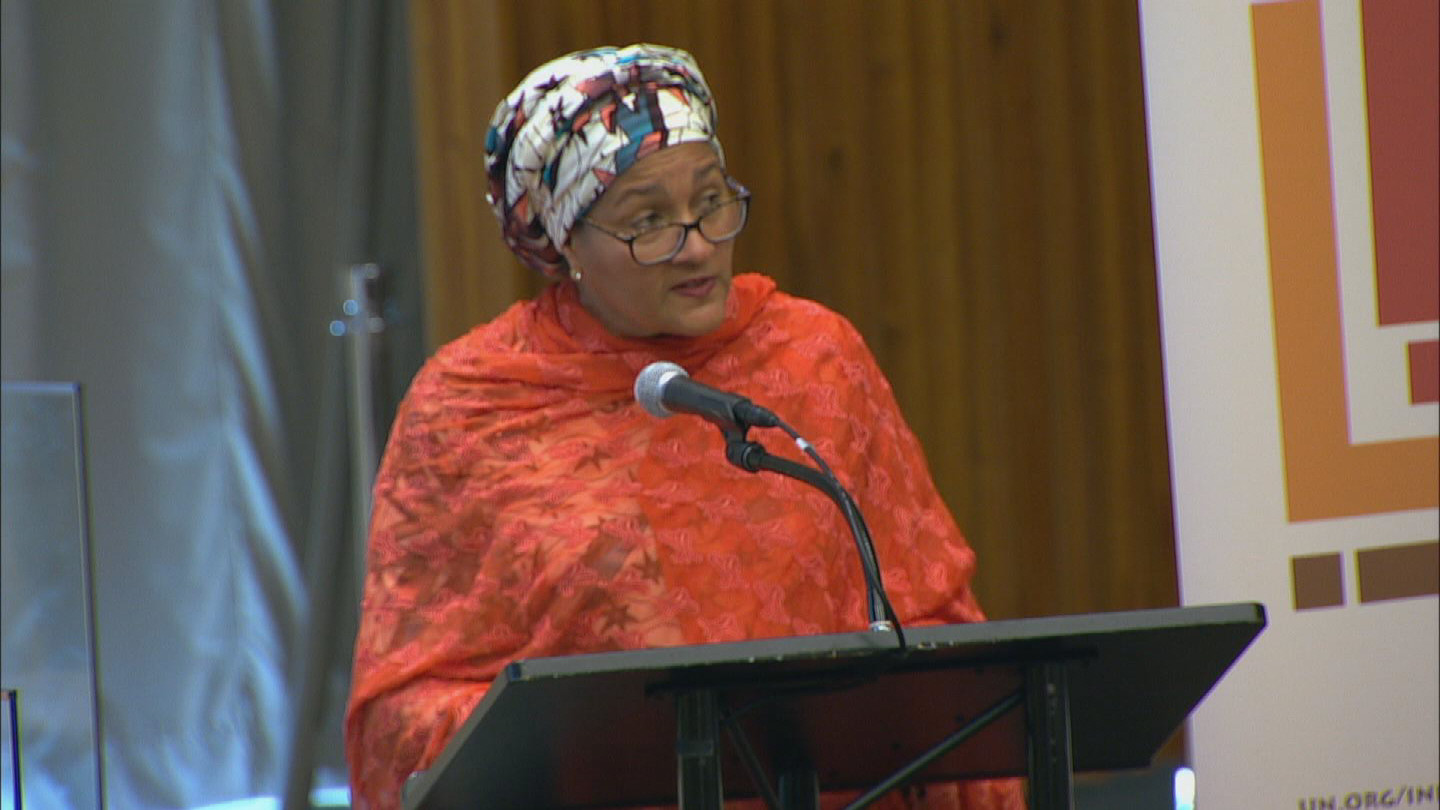UN / INDIGENOUS DAKOTA ACCESS
Download
There is no media available to download.
Share
STORY: UN / INDIGENOUS DAKOTA ACCESS
TRT: 02:04
SOURCE: UNIFEED
RESTRICTIONS: NONE
LANGUAGE: ENGLISH / NATS
DATELINE: 01 MAY 2017, NEW YORK CITY / FILE
FILE – RECENT, NEW YORK CITY
1. Wide shot, aerial view of United Nations Headquarters
01 MAY 2017, NEW YORK CITY
2. Wide shot, dais
3. Wide shot, journalists
4. SOUNDBITE (English) Victoria Tauli-Corpuz, Special Rapporteur on the Rights of Indigenous Peoples:
“The right processes in terms of consulting indigenous peoples and obtaining their free, prior and informed consent have not been done. And therefore those divestment efforts will certainly help in pushing the government and the corporations to go back to the communities and consult with them and obtain their consent. But also, I think it is something that speaks strongly in the need for environmental and social impact assessments.”
5. Med shot, journalists
6. SOUNDBITE (English) Heather Milton-Lightening, Co-Director Indigenous Tar Sands Campaign at the Polaris Institute:
“We call for the states of the world to implement the United Nations Declaration on the Rights of Indigenous Peoples. We call for the divestment of extraction projects on indigenous lands and investment in sustainable community led projects and investment into renewable energy economy, also known as Just Transition. We stand with the water protectors of Standing Rock who many have suffered at the hands of the hands of the Morton County Sheriff's department. We again call for the immediate cease and desist of the militarization of indigenous peoples’ lands, territories, and communities.”
7. Med shot, journalists
8. Wide shot, dais
9. SOUNDBITE (English) LaDonna Tamakawastewin Allard, Standing Rock Sioux Tribe:
“It is time for all indigenous people to unite together, to stand together for our world, our water, our resources; to stand together, to pray together; to defend the land together. And with that, through our Network of International Native Tradition Interchange we are asking for indigenous people to have a vote on the floor of the UN, as any other nation.”
10. Wide shot, end of presser
The Special Rapporteur on the Rights of Indigenous Peoples, Victoria Tauli-Corpuz, told journalists today (1 May) that “the right processes in terms of consulting indigenous peoples and obtaining their free, prior and informed consent have not been done” with regard to the Dakota Access pipeline in the United States.
Tauli-Corpuz expressed support for divestment efforts that “will certainly help in pushing the government and the corporations to go back to the communities and consult with them and obtain their consent.”
The Special Rapporteur also highlighted “the need for environmental and social impact assessments.”
Heather Milton-Lightening, who is the Co-Director of the Indigenous Tar Sands Campaign at the Polaris Institute in Canada, called on “the states of the world” to implement the United Nations Declaration on the Rights of Indigenous Peoples.
Milton-Lightening also expressed support for “divestment of extraction projects on indigenous lands and investment in sustainable community led projects and investment into renewable energy economy, also known as Just Transition.”
She said “we stand with the water protectors of Standing Rock who many have suffered at the hands of the hands of the Morton County Sheriff's department” and called “for the immediate cease and desist of the militarization of indigenous peoples’ lands, territories, and communities.”
LaDonna Tamakawastewin Allard, a land owner near the Standing Rock reservation and a member of the Standing Rock Sioux Tribe, said “it is time for all indigenous people to unite together, to stand together for our world, our water, our resources; to stand together, to pray together; to defend the land together. And with that, through our Network of International Native Tradition Interchange we are asking for indigenous people to have a vote on the floor of the UN, as any other nation.”
The United Nations Declaration on the Rights of Indigenous Peoples (UNDRIP) was adopted by the UN General Assembly on 13 September 2007.
